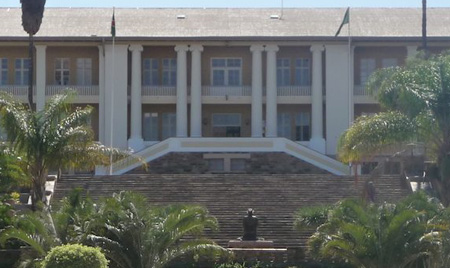
Industrial Property Act to come into effect in August

The Industrial Property Act, Act No. 1 of 2012 will be come into force, together with its regulations, according to the Business and Intellectual Property Authority (BIPA) in an announcement.
As from 1 August, BIPA, by virtue of its mandate, will be administering the new Act.
According to BIPA, the Act repeals legislations pertaining to patents, trademarks, designs, namely, the Trade Marks Act, Act No. 48 of 1973, The Patents and Designs Act, Act No. 9 of 1916, the
Patents and the Designs and the Trademarks and Copyright Proclamation Act, Act No. 17 of 1923.
However the Act does not cover any subject matter related to copyright as it remains covered under the Copyright and Neighbouring Rights Protection Act, Act No. 6 of 1994.
Ainna Kaundu, BIPA’s Intellectual Property Executive noted that the Act consolidates the same laws on Trade Marks, Patents and Industrial design.
“There are a number of changes under this new law that affects every Namibian in some way or the other. The most significant changes relate to the introduction of Utility Model protection, increase of application fees, the term protection for patents and the annual renewal requirements,” Kaundu said.
Moreover, the transformation of the Intellectual Property agenda and discourse in Namibia and on the continent has made it possible for a legislation of this caliber to come to life.
BIPA said that it is through multi-stakeholder consultative meetings that experts in the field of Intellectual Property hailed this legislation as one of the best in Africa, particularly due to the fact that this Act reflects a model Intellectual Property legal framework for developing countries, as well as that it encompasses a built-in mechanism that speaks to inclusive participation for all citizens.
Meanwhile, Namibia being a member of both the World Intellectual Property Organisation and the African Regional Intellectual Property Organisation, is signatory to a number of regional and international treaties and instruments, which under the new Act relate directly to the level of compliance to these instruments.
They include the Banjul Protocol on Trade Marks, Harare Protocol on Patents, Madrid Agreement concerning international registration of marks, the Patent Cooperation Treaty, Hague Agreement, Paris Convention and the TRIPS agreement falling under the World Trade Organisation.











































